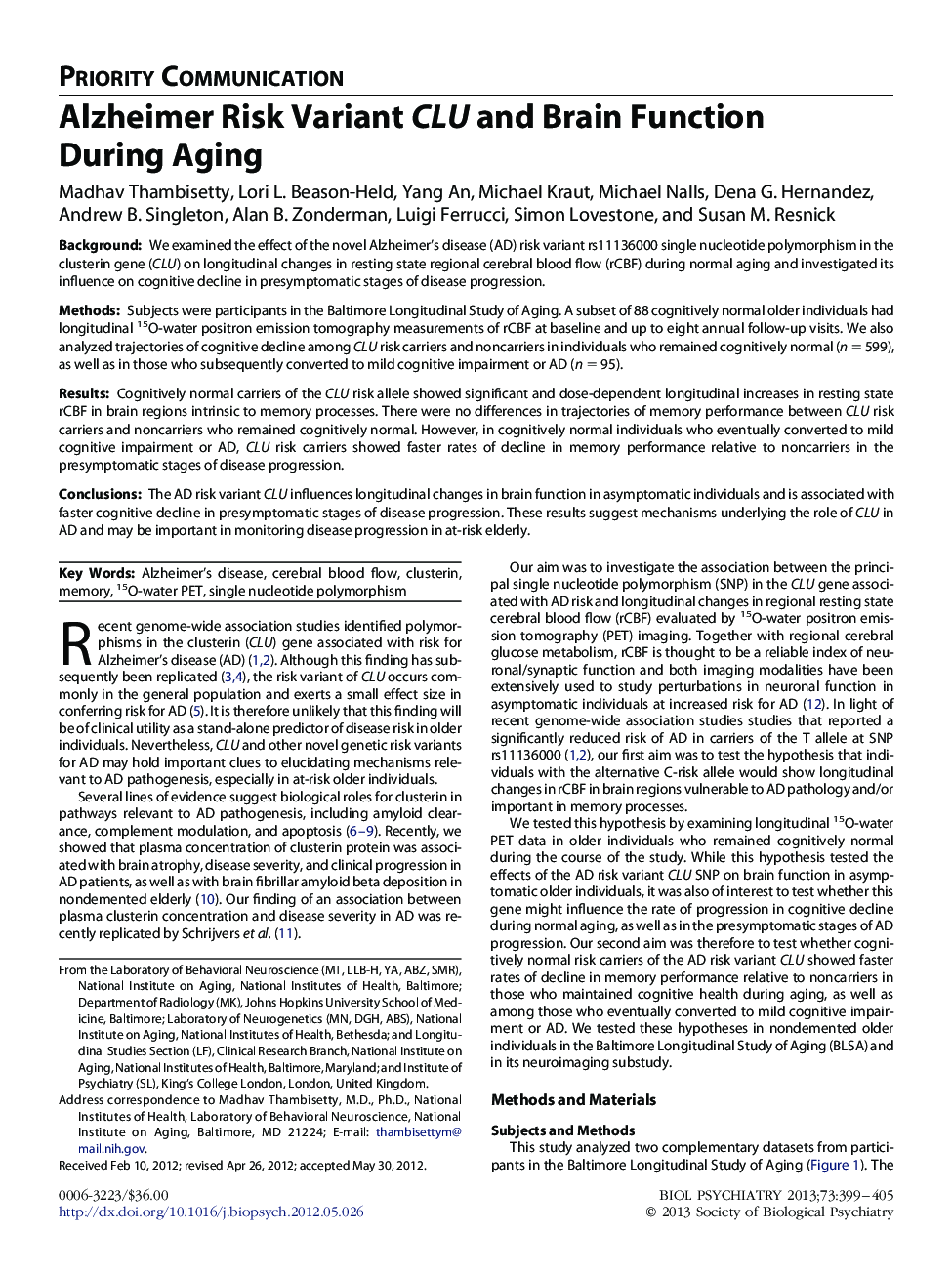| Article ID | Journal | Published Year | Pages | File Type |
|---|---|---|---|---|
| 4177919 | Biological Psychiatry | 2013 | 7 Pages |
BackgroundWe examined the effect of the novel Alzheimer's disease (AD) risk variant rs11136000 single nucleotide polymorphism in the clusterin gene (CLU) on longitudinal changes in resting state regional cerebral blood flow (rCBF) during normal aging and investigated its influence on cognitive decline in presymptomatic stages of disease progression.MethodsSubjects were participants in the Baltimore Longitudinal Study of Aging. A subset of 88 cognitively normal older individuals had longitudinal 15O-water positron emission tomography measurements of rCBF at baseline and up to eight annual follow-up visits. We also analyzed trajectories of cognitive decline among CLU risk carriers and noncarriers in individuals who remained cognitively normal (n = 599), as well as in those who subsequently converted to mild cognitive impairment or AD (n = 95).ResultsCognitively normal carriers of the CLU risk allele showed significant and dose-dependent longitudinal increases in resting state rCBF in brain regions intrinsic to memory processes. There were no differences in trajectories of memory performance between CLU risk carriers and noncarriers who remained cognitively normal. However, in cognitively normal individuals who eventually converted to mild cognitive impairment or AD, CLU risk carriers showed faster rates of decline in memory performance relative to noncarriers in the presymptomatic stages of disease progression.ConclusionsThe AD risk variant CLU influences longitudinal changes in brain function in asymptomatic individuals and is associated with faster cognitive decline in presymptomatic stages of disease progression. These results suggest mechanisms underlying the role of CLU in AD and may be important in monitoring disease progression in at-risk elderly.
